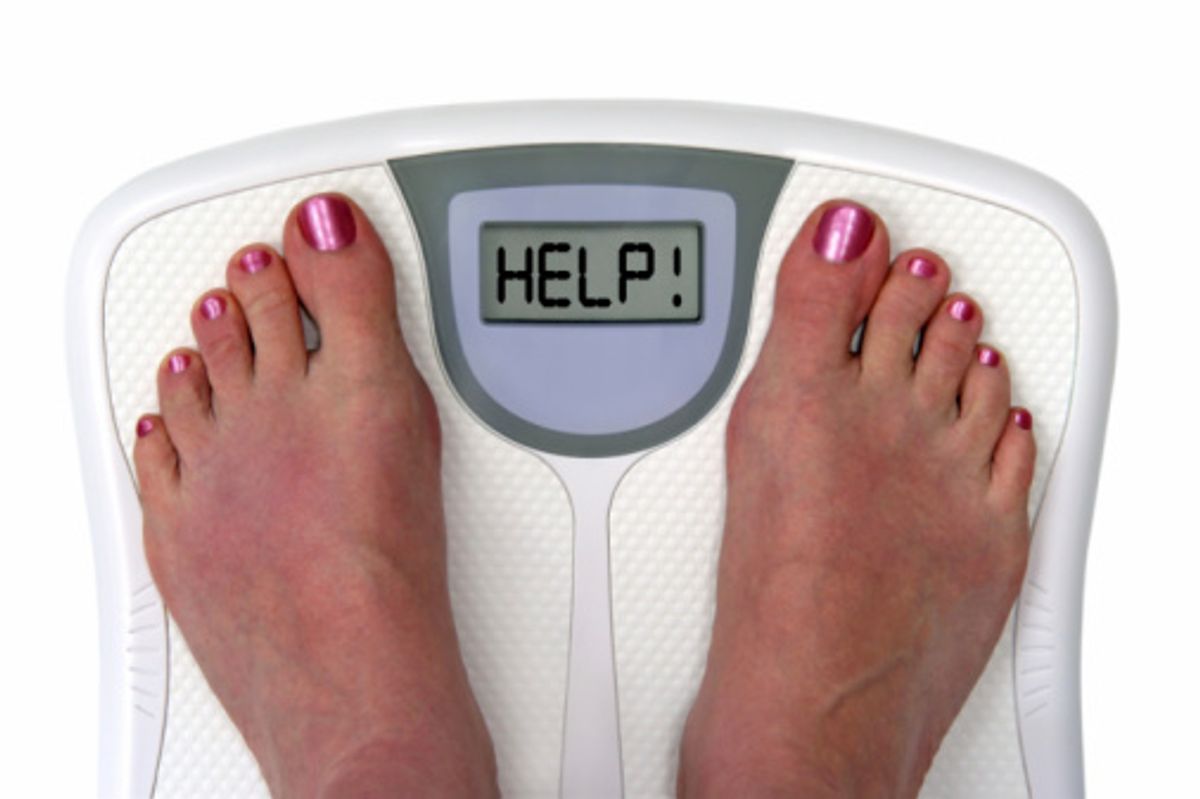A regular reader sent me this plea for help. I'm sure that most of us can relate:
I've been inspired by your recent posts about learning new ways to eat; I'm especially inspired by the fact that you were actually able to lose a few pounds. I'm 48 and going through perimenopause. The weight is creeping up and despite my dieting, I'm not losing a pound! Any advice?
Well, I'm no expert, just a person who tries to weigh (no pun intended) all the conflicting information that's out there and look at it logically.
Personally, I dislike intensely the phrase "on a diet." Because basically, if you're not "on" one, then you're "off" one. And I've never liked extremes. They usually end up to bite you…you know where.
Instead, I prefer to look at it as changing your eating patterns or habits or simply adopting a new strategy or way of life.
I think when you diet you automatically set yourself up for failure. If this was not the case, there would not be the huge market there is for diet books and fads. Hi carb, low carb; high fat, low fat, eat just cereal, eat only chocolate (wait – I might like this one…) Our compulsion with dieting not only leads to deprivation and aggravation, but it leads to weight GAIN rather than LOSS. And the fact that everyone is different - with different likes and dislikes, habits, willpower, motivation – means to me that there is no one-size-fits-all formula out there.
I don't have the magic answer for my reader's frustration, except to say this: look at the reasons your strategy might not be working. And then try to address those, rather than the food itself. Take a holistic approach to see where you might be tripping up, both mentally and physically. How about asking yourself these questions:
- Are you fully committed to your eating plan? Sure, cabbage soup and bananas for 2 weeks straight can shed some pounds, but really, can you stomach this type of arrangement for more than maybe one day?
- Do you expect miracles? You need to be realistic, after all. You might be able to lose 10 pounds in 2 weeks, but chances are it's going to come back sooner than later. Remember, it took you a while to gain the weight…so it'll take a while to lose it.
- Is your plan sustainable? Or are you starving all day long, drooling on yourself until your next meal? Could you really eat like this forever? If not, it's not realistic. Tip: Make sure you have an ample amount of filling foods on hand so that your hunger is happily satisfied. Cut up a bunch of carrots and celery and other veggies and keep them in plastic zip-top bags that you can grab in a hurry, before your intense hunger makes you do something you'll regret the minute it's out of your mouth, heading south for your stomach.
- Can you get back on track? We all have slip-ups. In a moment of weakness (or hunger), you ate that gooey dessert, double-scoop ice cream cone, extra piece of bread slathered with butter. That doesn't mean all is lost. Think of it as a lapse rather than a relapse. And allow yourself a treat once in a while; this way the track won't seem so hard to follow.
- Are you exercising? So many of us think that diet alone will do the trick. But you need to rev up your metabolism to burn those calories throughout the day. Exercise will also get you out of the house, away from the focus on food or the refrigerator.
- Are you eating enough calories? Your goal may be to lose weight, but if you are starving yourself, you're slowing your metabolism and actually burning calories at a far less effective rate than you could and should. And you might be setting yourself up for bingeing because face it – starving people seek out food. Lots of it.
This matters> It is possible to lose weight. You might have to experiment to see what is most realistic for you and your lifestyle. Remember the old adage – calories in, calories out; or as I like to think of it: if you take in more than you burn, you end up wearing it.







